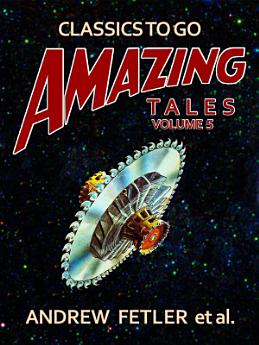Amazing Tales Volume 5
Tungkol sa ebook na ito
Tungkol sa may-akda
Andrew Fetler, an enigmatic figure in 20th-century American literature, carved a niche for himself with his eclectic storytelling and profound philosophical insights. Born in 1924 in Latvia, Fetler's early life was marked by the tumultuous backdrop of World War II, which profoundly influenced his literary voice. Emigrating to the United States, he pursued an education at the University of Chicago, where he delved into the works of existentialist thinkers and modernist writers, shaping his distinctive narrative style. Fetler's literary contributions are characterized by their exploration of identity, displacement, and the human condition. His works often blend elements of magical realism with stark realism, creating a unique tapestry that challenges readers to confront uncomfortable truths about society and themselves. His prose, noted for its lyrical quality and deep psychological insight, has been compared to that of Gabriel Garcia Marquez and Franz Kafka. Controversy was never far from Fetler. His unapologetic critiques of political ideologies and social norms often put him at odds with mainstream literary circles. Yet, it was this very defiance that endeared him to a generation of writers and thinkers who sought to push the boundaries of conventional storytelling. Fetler's influence on contemporary writers is undeniable. His fearless approach to taboo subjects and his innovative narrative techniques have inspired a new wave of authors who continue to explore the complexities of human existence. Despite his relatively modest commercial success, Fetler's legacy endures, reminding us of the power of literature to provoke, challenge, and ultimately transform.








